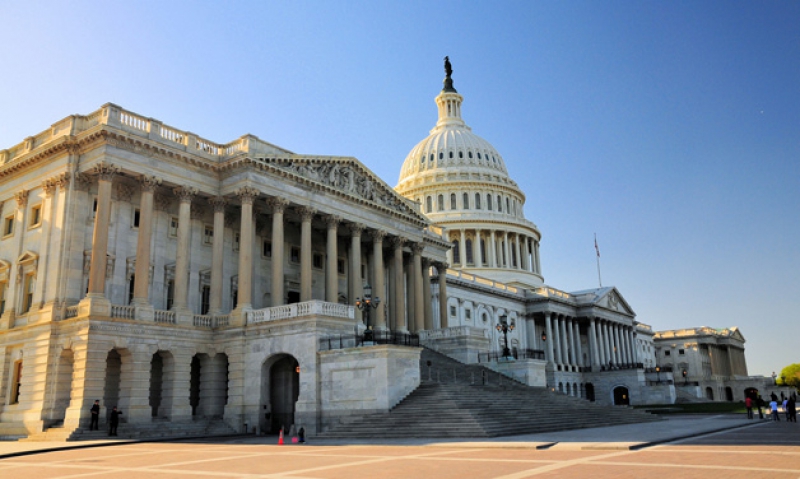
Author of Veterans Skills to Jobs act praises Legion for its efforts to make federal licenses easier to obtain for qualified veterans.
A short, simple, American Legion-favored bill designed to streamline the process of granting civilian professional licenses and credentials to appropriately trained and experienced military veterans has passed the U.S. House of Representatives.
The Veteran Skills to Jobs Act (H.R. 4155) was introduced in early March by Rep. Jeff Denham, D-Calif., a member of American Legion Post 74 in Modesto, Calif. The measure was explained by Rep. Gerald Connolly, D-Va., who argued in its favor on the House floor Monday afternoon. The bill, Connolly said, would "require each federal agency with licensing authority to treat relevant military training as sufficient to satisfy training or (certification) requirements for federal licenses." Connolly noted that, "Transitioning to civilian life is difficult under any circumstance. However, the hardship is compounded when veterans cannot easily translate their military skills into careers in the public or private sector workforce through no fault of their own. In addition, there is the task of educating employers to better understand that so much of military training is readily transferable to civilian job requirements in the private sector. We need to do better for our veterans."
This sentiment was echoed by Rep. Jason Chaffetz, R- Utah, who called the legislation common sense. "While most licenses are issued by states, the federal government does grant a number of licenses, most notably in the aerospace, communications and maritime sectors," he said. "With the unemployment rate for Post-9/11 veterans at 12.7 percent, we must better support our veterans as they transition into the civilian workforce. The bill provides some certainty to veterans during their transition from (the) military by assuring that their training is taken into account when applying for federal licenses. The bill does not infringe on the jurisdiction of the licensing agency. Instead, it leaves the agency free to determine if military training is sufficient to meet license requirements."
The Veteran Skills to Jobs Act co-sponsor, Rep. Tim Walz, D-Minn., took a businesslike approach in his statement of support. "The moral obligation to our veterans is pretty much unquestioned, but we must make sure the economic impact is felt, also," he said. "We spend $140 billion a year to train our military. That’s an investment in those folks. When they finish their career, whether it be a stint of four years or whether it’s a 20- or 30-year career, they come out with incredible skills (and) training and incredible professionalism and they are a very mature workforce. Why would we not want to get our best and brightest back working in the economy? This piece of legislation was crafted in such a way to do exactly that. The implementation of credentialing (places) no undue burden on the military nor (on) its readiness. In fact, opportunities for credentialing will be a selling point for our military. You can come out and move directly into a job as an aviation mechanic or whatever…"
Denham, the bill’s author, included a personal note in his plea for the bill’s passage. "America is blessed with the strongest, most capable and professional military in the world," he said. "Unfortunately for many of our veterans, transitioning from the service means a battle with joblessness. For our young veterans (the unemployment rate is) 29.1 percent for those under the age of 25. The federal government has invested in our service men and women some of the most unique, expensive and valued training in the world. These brave young men and women have put their lives on the line and deserve to be able to use this training when they come back home. I personally dealt with this issue when I left active duty as a crew chief. Though I had training on the most sophisticated aircraft in the world, to work on less sophisticated aircraft on the civilian side it would have taken me three years of training after I left active duty. It’s time to say ‘enough is enough’. If you have the best training in the world, you should be able to get the best job in the world. If you leave active duty today, you ought to have work tomorrow in the private sector utilizing that very same training."
Denham ended his remarks by thanking co-sponsor Walz and then thanking The American Legion. "They have worked tirelessly in both bodies (of Congress), as well as from a grassroots perspective across the nation, working with many other service organizations, to actually make this a reality," he said. "Now it’s time this body does its job and passes this important measure."
On Monday evening, the House did – unanimously (369 - 0). The Veteran Jobs to Skills Act is nearing enactment now. An identical measure, introduced by Sen. Bill Nelson, D-Fla., recently passed the upper house. Actual implementation of the act may prove challenging, since the various federal agencies involved must decide how precisely to credit military training and experience toward their respective credentials. The American Legion’s Economic Division has already begun talks with the appropriate parties to assist in this process.
- Careers

